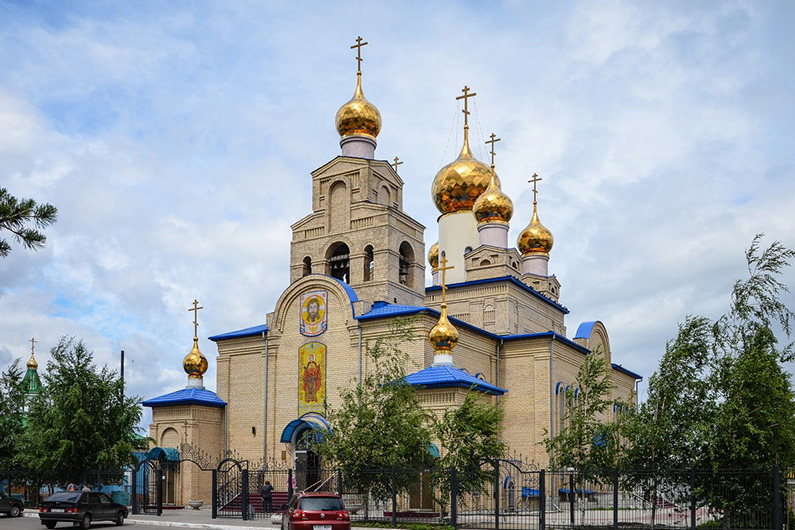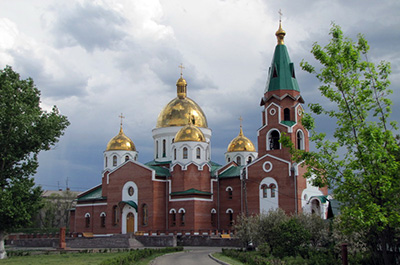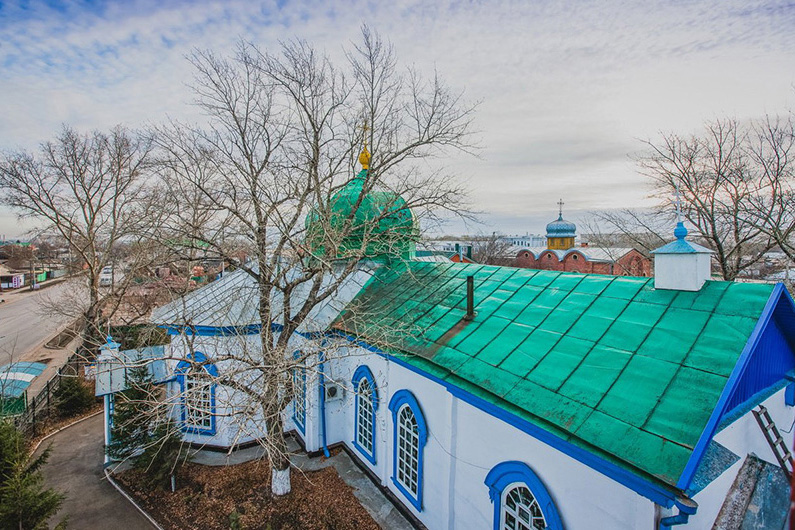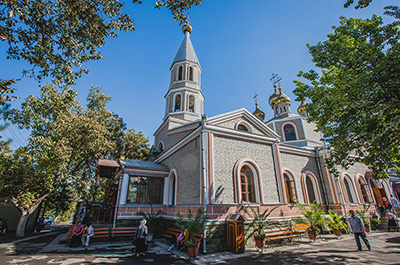
The head of the Metropolitan District performed Vespers with the removal of the Holy Shroud and Matins with the rite of burial of the Savior in the main church of the southern capital
- 03.05.2024, 20:45
- Новости на английском языке

May 3, 2024 – Great and Good Friday – commemoration of the Holy Saving Passion and Death of our Lord Jesus Christ.
Metropolitan Alexander of Astana and Kazakhstan led the Great Vespers with the removal of the Holy Shroud and Matins with the rite of burial of the Savior in the Ascension Cathedral in Almaty.
According to tradition, Great Vespers in memory of the suffering of the Savior, the taking down of the body of Christ from the cross and His burial is celebrated earlier than usual - at the hour of the death of the Lord Jesus Christ on the cross.
After entering with the Gospel, three proverbs are read from the books of Exodus, Job and the prophet Isaiah, which prophetically depict the suffering of the Redeemer of the world. The attention of those praying is offered reading from the Epistle of the Apostle Paul to the Corinthians about the Divine power and wisdom revealed in the Savior’s suffering on the cross (1 Cor. 1:18–2:2), and the composite Gospel conception about the last hours of earthly life and death on the cross of the Lord (Matthew 27 :1–43; Matthew 27:45–54;
At the end of Vespers, while singing the troparia “Blessed Joseph...”, while presenting lighted candles and burning incense, from the Throne, as if from Golgotha, the Metropolitan and the clergy carried out from the altar the image of Christ’s position in the tomb - the Holy Shroud. An embroidered shroud with an icon of the burial of the Savior is placed on a tomb decorated with flowers in the center of the temple; On the sides there are katsei (censers) with burning coal and incense.
After the removal of the Shroud, the canon was read “on the Crucifixion of the Lord and on the lamentation of the Most Holy Theotokos.” This touching work, compiled in the 10th century by Saint Simeon Metaphrastus, represents the words of the Most Holy Theotokos addressed to the suffering and dying Son on the Cross.
Immediately after the reading of the canon, the service continued with Matins with the rite of burial of the Lord Jesus Christ. The service of Matins on Great Saturday is dedicated to the descent of Christ into hell and the Savior's victory over death.
After singing the troparions on “God is the Lord,” Metropolitan Alexander and the clergy who served him before the Shroud of the Savior read the Immaculate – verses of the 17th kathisma, interspersed with special short prayers, “praises” in honor of the Lord, “counted among the dead.” At the end of the Great Doxology with the singing of “Holy God,” accompanied by the funeral bells, the Shroud was surrounded by a procession of the cross, in remembrance of the descent of the Lord Jesus Christ into hell and His victory over death.
At the end of the procession in front of the Shroud, the following were announced: a prophecy from the book of the prophet Ezekiel, who contemplated the resurrection of the dead (Ezekiel 37:1-14), and an excerpt from the letter of the Apostle Paul to the Corinthians about the fruits of the Savior’s death (1 Cor. 6:7-8, Gal. 4:13-14), after which the archpastor read the Gospel concept about the sealing of the Holy Sepulcher by the high priests and the appointment of guards to it (Matt. 27:62-66).
While singing the stichera “Come, let us bless Joseph, the ever-memorable,” the archpastor and clergy carried part of the life-giving Holy Sepulcher from the altar and laid the ark with the shrine on the lectern next to the shroud.
The Holy Shroud will be in the middle of the temple until Easter Matins, recalling the three-day presence of the Lord Jesus Christ in the tomb.





















